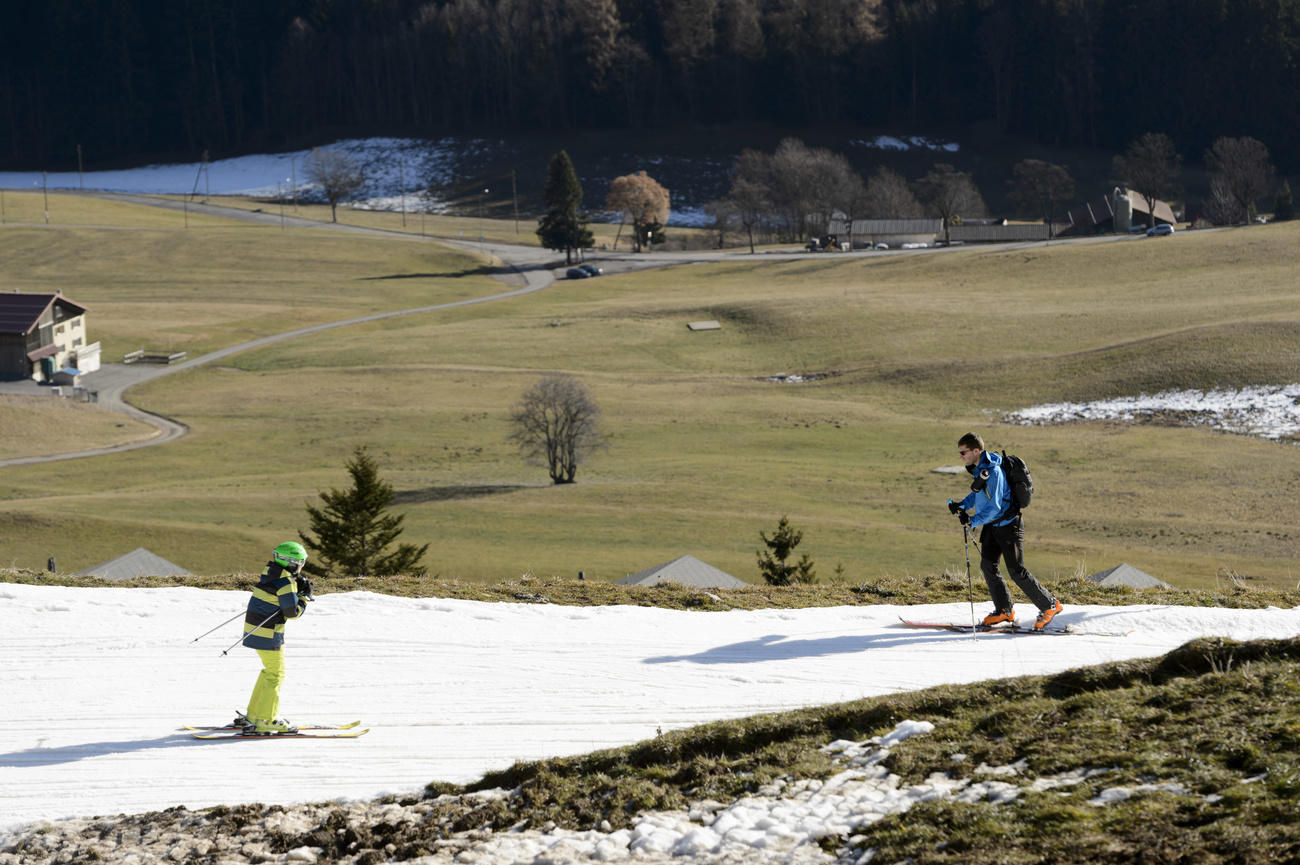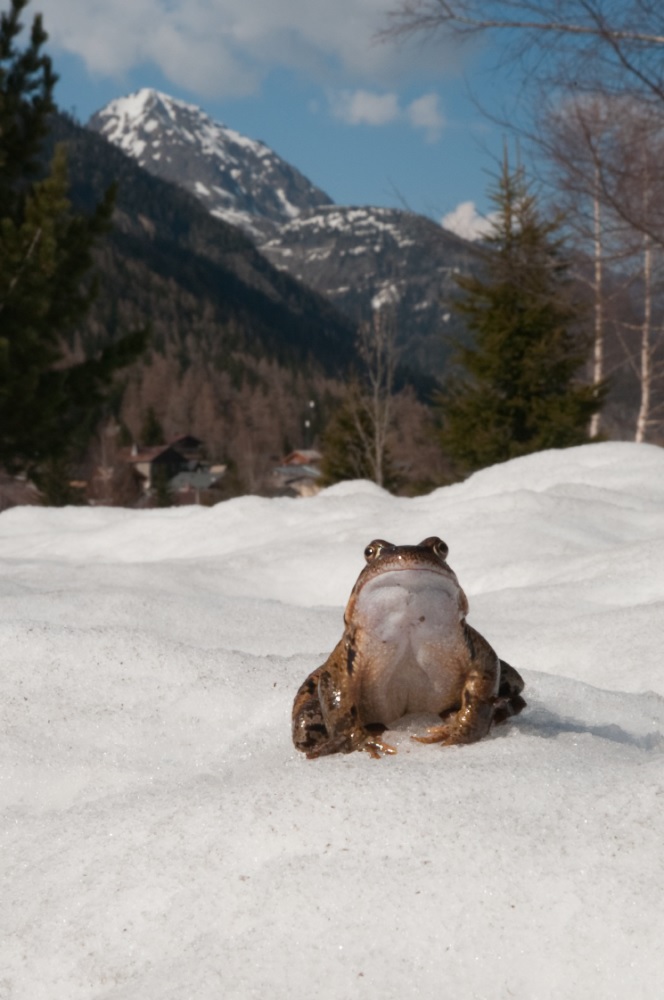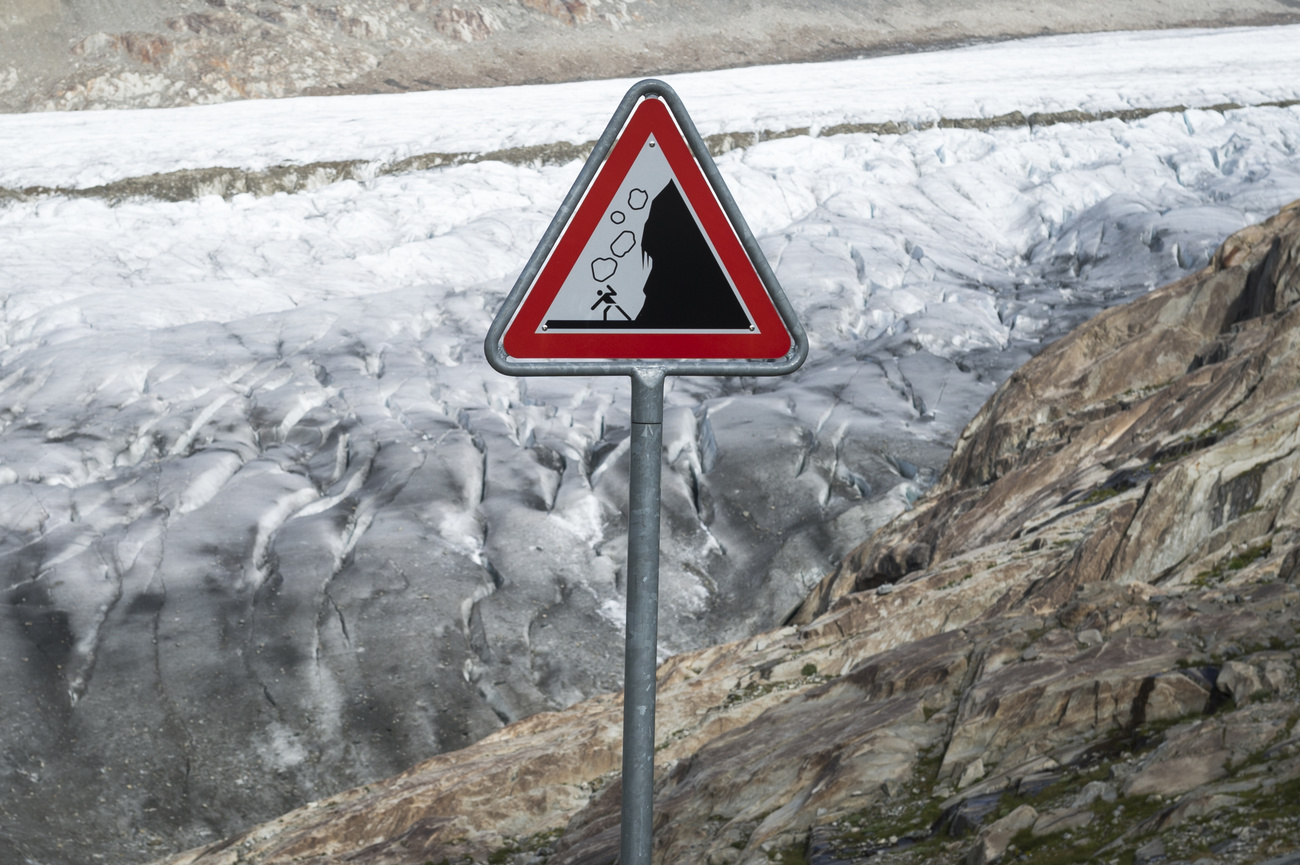
Study: spring in Swiss Alps starts earlier and earlier

The warming climate is causing Alpine plants to sprout much earlier - on average six days earlier than 25 years ago - a Swiss study shows. This affects biodiversity, agriculture and the ecological balance.
+Get the most important news from Switzerland in your inbox
The reason for the change is the significant rise in temperatures in the Alps. After the disappearance of snow cover in spring, the ambient temperature is almost two degrees Celsius warmer than it was in 1998, the WSL Institute for Snow and Avalanche Research SLF said on Friday. A study by researcher and biologist Michael Zehnder, newly published in the Global Change Biology journal, examines this trend.

More
‘Greening’ of the Alps is visible from space
This phenomenon also has consequences for the economy and society. Not only does it attract visitors to the mountains earlier, but Alpine farming could also start earlier in future.
Change in biodiversity
According to the study, biodiversity in the Alps will also change. Not all plants grow at the same time after the snow melts. The “internal clock” causes some to only sprout when the days have reached a certain length. Others need warmth above all, Zehnder explained.

More
Alpine species struggle to keep pace with climate crisis
Plants that primarily need warmth could displace those that follow the length of the day. “Climate change is reshaping the ecosystem in the mountains,” Zehnder concludes.
For his work, he used 40 weather stations of the Intercantonal Measurement and Information System (IMIS) at 1,700-2,700 metres altitude. These have an ultrasonic sensor that measures the snow depth. In summer, they also measure and record the height of the vegetation.
A special computer model then recognised whether there was snow or plants under the sensor. This enabled Zehnder to see when snow had disappeared and vegetation had started growing. For his study he analysed data from 1998 to 2023.

More
How climate change is threatening permafrost’s delicate balance
What is your opinion? Join the debate:
Translated from German by DeepL/sb
How we work
We select the most relevant news for an international audience and use automatic translation tools such as DeepL to translate them into English. A journalist then reviews the translation for clarity and accuracy before publication. Providing you with automatically translated news gives us the time to write more in-depth articles. The news stories we select have been written and carefully fact-checked by an external editorial team from news agencies such as Bloomberg or Keystone.
Did you find this explanation helpful? Please fill out the short survey below to help us understand your needs.

In compliance with the JTI standards
More: SWI swissinfo.ch certified by the Journalism Trust Initiative




























You can find an overview of ongoing debates with our journalists here . Please join us!
If you want to start a conversation about a topic raised in this article or want to report factual errors, email us at english@swissinfo.ch.